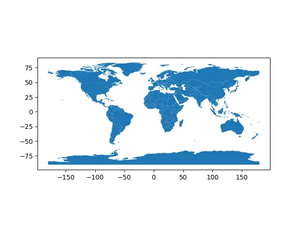Understanding the Warning
The FutureWarning in Pandas regarding downcasting object dtype arrays on methods like .fillna(), .ffill(), and .bfill() is a notification to developers about changes in the behavior of these methods that will take effect in future versions of Pandas. This warning aims to give developers enough time to adjust their code accordingly. It’s crucial to understand why this warning is shown and how to address it to ensure your data processing scripts remain efficient and forward-compatible.
Why It Occurs?
This warning is triggered when the .fillna(), .ffill(), or .bfill() methods are called on a DataFrame or Series object with an object data type, and an attempt is made to downcast the data type automatically. This behavior is deprecated because it can lead to unexpected results and data inconsistencies, especially when working with mixed data types.
Solution 1: Convert Data Types Manually Before Filling NA
Manually convert the data types of your objects to the appropriate type before applying fill operations. This solution ensures that there are no ambiguities in your data types, making your data cleaning and preparation more predictable and stable.
- Identify columns with the
objectdtype that will be involved in the fill operation. - Determine the most appropriate data type for each column based on the data it contains.
- Use the
.astype()method to convert the data types. - Apply the
.fillna(),.ffill(), or.bfill()methods as needed.
Code example:
import pandas as pd
df = pd.DataFrame({'A': ['1', None, '3'], 'B': ['x', 'y', None]})
df['A'] = df['A'].astype(float)
df['B'] = df['B'].astype('category')
df.fillna({'A': 0, 'B': 'unknown'})
Output:
A B
0 1.0 x
1 0.0 y
2 3.0 unknown
Notes: While this approach offers greater control over your data types, it requires a clear understanding of the data and its optimal data type. Converting to inappropriate data types can lead to data loss or errors.
Solution 2: Use a Custom Function for Conditional Downcasting
Implement a custom function to conditionally downcast columns based on the data they contain. This method allows for more granular control over downcasting, enabling you to specify exactly when and how types should be converted.
- Create a custom function that takes a column as input and applies conditional logic to downcast the column.
- Iterate over each column in the DataFrame and apply the function where necessary.
- Use the modified DataFrame to apply
.fillna(),.ffill(), or.bfill()without triggering the warning.
Code example:
import pandas as pd
def downcast_column(column):
if column.dtype == 'object':
try:
return column.astype(float)
except ValueError:
return column.astype('category')
return column
df = pd.DataFrame({'A': ['1', None, '3'], 'B': ['x', 'y', None]})
for col in df.columns:
df[col] = downcast_column(df[col])
df.fillna({'A': 0, 'B': 'unknown'})
Output:
A B
0 1.0 x
1 0.0 y
2 3.0 unknown
Notes: This solution provides a flexible approach to handling diverse data types, but it can increase complexity and processing time, especially with large datasets.
